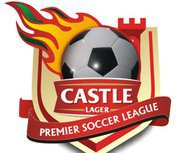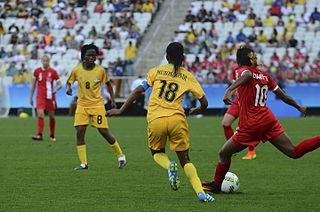
Harare is the capital and most populous city of Zimbabwe. The city proper has an area of 960.6 km2 (371 mi2) and an estimated population of 1,606,000 in 2009, with 2,800,000 in its metropolitan area in 2006. Situated in north-eastern Zimbabwe in the country's Mashonaland region, Harare is a metropolitan province, which also incorporates the municipalities of Chitungwiza and Epworth. The city sits on a plateau at an elevation of 1,483 metres above sea level and its climate falls into the subtropical highland category.

Bulawayo is the second largest city in Zimbabwe, and the largest city in the country's Matabeleland region. The city's population is disputed; the 2012 census listed it at 653,337, while the Bulawayo City Council claimed it to be about 1.2 million. Bulawayo covers an area of about 1,707 square kilometres in the western part of the country, along the Matsheumhlope River. Along with the capital Harare, Bulawayo is one of two cities in Zimbabwe that is also a province.
Henry Khaaba Olonga is a Zimbabwean former cricketer, who played Test and One Day International (ODI) cricket for Zimbabwe. In domestic first-class cricket in Zimbabwe, Olonga played for Matabeleland, Mashonaland and Manicaland. When he made his Test debut in January 1995, he was the first black cricketer and the youngest person to play for Zimbabwe. He was a regular member of the Zimbabwe team from 1998 to 2003.
The National Railways of Zimbabwe (NRZ), formerly Rhodesia Railways, is the parastatal railway of Zimbabwe. The Zimbabwean railway system was largely constructed during the time of 20th Century. Segments of its systems were intended to be part of the Cape to Cairo Railway.

The Zimbabwe National Army (ZNA) is the primary branch of the Zimbabwe Defence Forces responsible for land-oriented military operations. It is the largest service branch under the Zimbabwean Joint Operations Command (JOC). The modern army has its roots in the Rhodesian Army, which was raised between 1963 and 1964 after the breakup of the Federation of Rhodesia and Nyasaland. A Joint High Command created in March 1980 to oversee integration of the formerly belligerent Rhodesian Security Forces, Zimbabwe African National Liberation Army (ZANLA), and the Zimbabwe People's Revolutionary Army (ZIPRA) officially established the Zimbabwe National Army in late 1980, nearly a year after the end of the Rhodesian Bush War.

Highlanders FC is a Zimbabwean football club based in Bulawayo, Zimbabwe, formed in 1926 that plays in the Zimbabwe Premier Soccer League. It is also known colloquially as iBosso.
Dubé and Dube are common surnames, mostly French-based.

Zimbabwe Premier Soccer League is the top professional division of the Zimbabwe Football Association. It was created in 1980, as a successor to the 1962 formed Rhodesia National Football League. It is currently sponsored by Delta Beverages under the Castle Lager brand and hence is known as Castle Lager Premier Soccer League. The current sponsorship deal runs from 2011 and is worth $3.6 million.
The Zimbabwean Independence Trophy is a Zimbabwean association football knockout tournament. It was created as a clubs competition in 1983 played during commemorations of the country's independence. The final is usually played on 18 April, which is the nation's Independence Day.
This article describes the history of cricket in Zimbabwe from the 1992–93 season until the end of the country's involvement in Test cricket in 2006.

Sport in Zimbabwe has a long tradition and has produced many world recognized sports names and personalities. Football is the most popular sport, although rugby union, cricket and netball also have a following, traditionally among the white minority. Field hockey is also played widely. Although Zimbabwe has produced many athletes that have competed for Zimbabwe, there are also many athletes who learned their sport in Zimbabwe, but have chosen to represent other countries.
In 1916-1917 a series of letters by ʻAbdu'l-Bahá, then head of the religion, asked the followers of the religion to take the religion to regions of Africa; these letters were compiled together in the book titled Tablets of the Divine Plan. In 1929 Shoghi Effendi, then Guardian of the religion, was the first Baháʼí to visit the area. In 1953 several Baháʼís settled in what was then South Rhodesia as pioneers. Along with indigenous conversions in 1955 the Baháʼís formed the first Baháʼí Local Spiritual Assembly was formed in Harare. By the end of 1963 there were 9 assemblies and more smaller groups and isolated members of the religion. While still a colony of the United Kingdom, the Baháʼís nevertheless organized a separate National Spiritual Assembly in 1964. Though Rhodesia declared independence in 1965, succeeding political developments and wars changed the status of the country and the National Assembly was reformed and has continued since 1970 while Zimbabwe regained independence in 1980. By 2003, the 50th anniversary of the Baháʼís in Zimbabwe, a year of events across the country culminated with a conference of Baháʼís from all provinces of Zimbabwe and nine countries. There were 43 local spiritual assemblies in 2003.

The history of the Jews in Zimbabwe reaches back over one century. Present-day Zimbabwe was formerly known as Southern Rhodesia and later as Rhodesia.

The Chronicle is a popular daily newspaper in Zimbabwe. It is published in Bulawayo and mostly reports on news in the Matebeleland region in the southern part of the country. It is state-owned and therefore usually only publishes news that supports the government and its policies. It also covers stories on national and international news, as well as entertainment, sport, business, travel, job offers and real estate. It was established in 1894 and it was the largest newspaper in the country following The Herald.
Zambia women's national football team, nicknamed The She-polopolo, represents the country in international match. There is also a Zambia women's national under-17 football team, a Zambia women's national under-20 football team, and Olympic qualifying team and a Homeless World Cup team. The country has participated in several qualifying tournaments for the FIFA Women's World Cup and other African-based football tournaments. The team is currently ranked 116th in the world.
The Church of Jesus Christ of Latter-day Saints in Zimbabwe reported 32,937 members in 7 stakes, 3 district, and 80 congregations, as of 31 December 2018.
Edward Dube has been a general authority of The Church of Jesus Christ of Latter-day Saints since April 2013. He is the first Zimbabwean and the second black African to be a general authority.

Indonesia–Zimbabwe relations were established on 1986, followed by the opening of the Indonesian embassy in Harare on June 2. Indonesia has an embassy in Harare that is also accredited to Zambia, while Zimbabwe has an embassy in Jakarta. Both nations are members of the Non-Aligned Movement.
The following is a timeline of the history of the city of Bulawayo, Zimbabwe.
Proud Chinembriri, known professionally as Proud Kilimanjaro, was a Zimbabwean heavyweight boxer, who was the Zimbabwean heavyweight champion between 1982 and his retirement in 1990, and African Boxing Union champion between 1982 and 1987, and again between 1988 and 1990.








